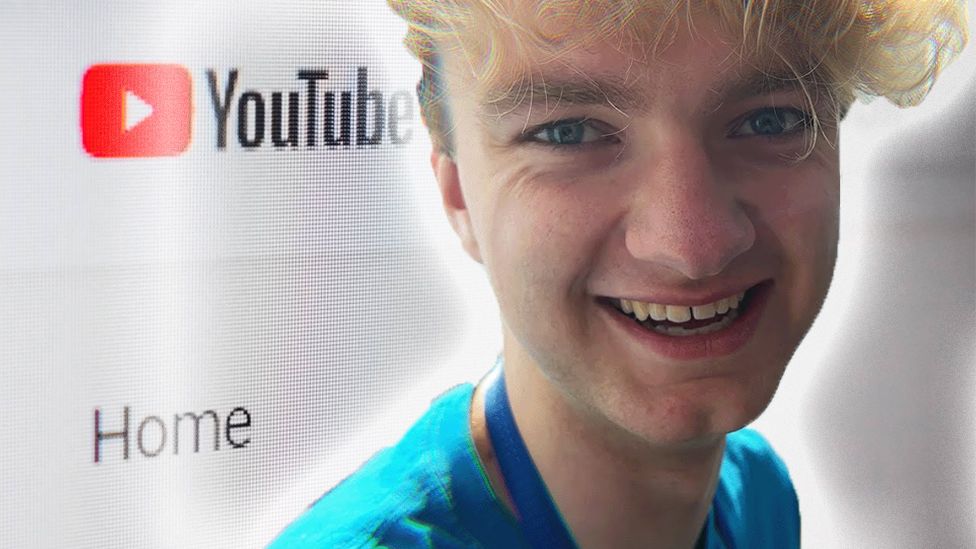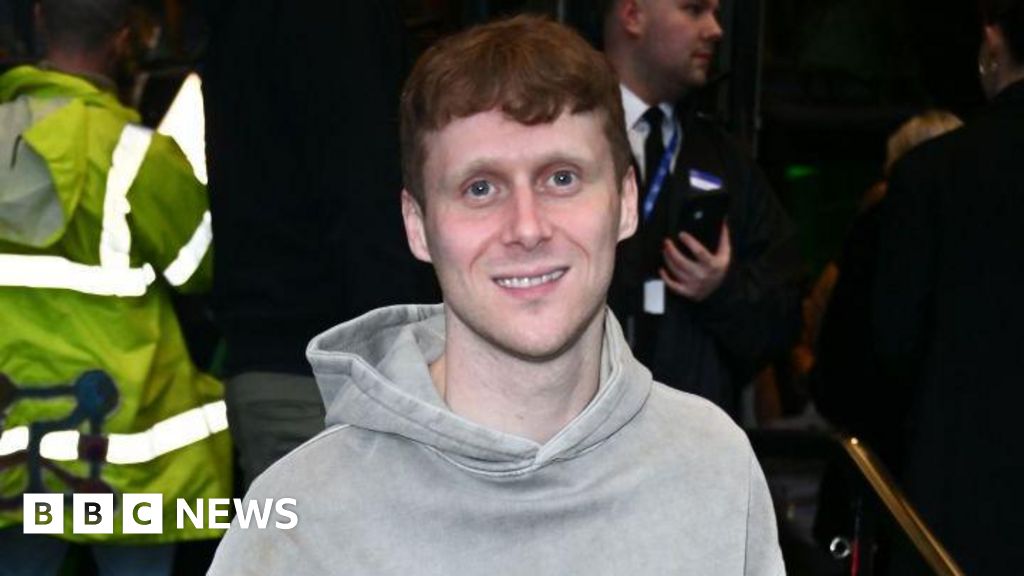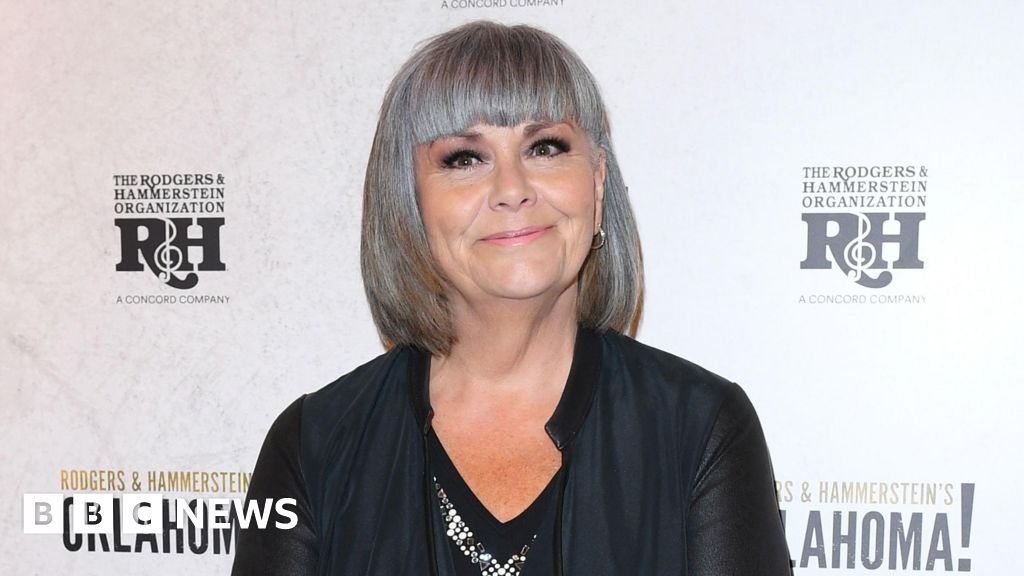ARTICLE AD BOX
 Image source, Tommyinnit/youtube
Image source, Tommyinnit/youtube
By Steffan Powell
Gaming reporter
Many people wouldn't look twice if they walked past Tom Simons, known as TommyInnit, in the street. Plenty, though, would go giddy with excitement.
He's likeable, funny and energetic - traits that, when mixed with Minecraft, lockdown and a strong work ethic, have made him one of the most famous content creators in the world.
He joins our Zoom meeting bang on time, which I wasn't necessarily expecting given that he's 19, has 40 million subscribers, works to his own schedule and is reportedly a millionaire.
"It's all a bit weird," he laughs when reflecting on his fame.
"I always wanted to just try video editing and make silly little jokes in Minecraft. Then, when it started taking off, I was like oh, you can be like DanTDM, you can be a professional YouTuber - this isn't a distant dream, and so I stuck with it."
Describing himself as a professional silly-man, like many successful content creators he spreads himself across multiple platforms to keep a connection with his audience.
But the challenge of staying on top in the digital world is difficult because the goalposts are always shifting. "It's such a fast-moving industry in a way that is really unusual in terms of how the rest of the world works," he says.
"Every few weeks there's a huge change - and it's completely controlled by the platforms. If YouTube, for example, decided tomorrow, right we want to promote everyone that's making two minute long videos now - then everyone's going to start doing that."
Image source, TomSimonsVlog/YouTube
Image caption,Simons has released a book and performed live stage shows to diversify his work
When Simons started his longer-form gaming sessions on streaming site Twitch during lockdown, TikTok was not yet the world-conquering social media platform it is today. Now his short-form comedy sketches on the app are watched by millions. Simons has been able to adapt - something he says those in the world of content creation must do constantly.
It's a challenge but, he argues, also what makes it so interesting. "It's why I can do it for five years and still today be like, what am I going to do next? There's all this short-form content coming through at the moment, which is so completely different to what I'm used to. It makes this so unpredictable and so awesome."
Hedging your bets
YouTube and internet trends expert Chris Stokel-Walker sympathises with creators like Simons, who have to navigate the ever-shifting online world to stay relevant. "The last few months of Elon Musk's flip-flopping on key decisions about the future of Twitter have shown the precarity of the platforms on which digital creators build their livelihoods," he says.
"In previous years, creators have worried about policy changes to YouTube - and it looks like those major changes are small fry compared to the more flippant and fundamental changes Musk is making.
"This means that diversifying your income streams as a creator is ever more important. It's about hedging your bets. If Musk wakes up tomorrow and decides that he's banning anyone from linking out to Instagram or YouTube, you need to have another way of keeping the cash coming in."
Counterculture
YouTube as a platform has changed dramatically since its early years as a place where people would upload simple videos sharing their creativity, niche expertise or thoughts with the world.
Today's most successful YouTubers create highly produced and polished videos that rival or even exceed the production values of linear television.
Simons explains: "At the moment, YouTube is in an interesting and a different place to where it has been, and a lot of that is because there is a new standard of video that is really linked with money. Right now, the bigger stuff on YouTube feels quite like glorified game shows as opposed to what they used to be - just blokes speaking to a camera.
"The rise of this is becoming increasingly exhausting. It feels very repetitive at the moment."
Image source, TomSimonsVlog/YouTube
Image caption,Simons rose to prominence during lockdown and now has around 40 million subscribers spread across his online accounts
Leading the way with this trend is creator MrBeast, who has reproduced elements of Netflix hit Squid Game on his channel, played hide and seek in an 80,000-seater stadium and been buried underground - videos that cost lots of money to produce.
This is now seen as a formula for success on the platform with many trying to emulate him, which Simons explains is making it difficult for new creators to break through. "It feels like an especially hard climate to get into if you're trying to do what everyone else is doing," he says.
"The great thing about YouTube though, and all these content creation places, is whenever there's a culture, there's always suddenly a counterculture. I think we're in an interesting place now where there is room for a really good new thing, and it can be anything - that's what's made this platform so consistently interesting over the years.
"There has never been a better place for rewarding creativity and natural entertainment. If you're good at something, and you can figure out a way to explain that in a way that is compatible with the platform, then you can have the most eyes on that content than anywhere else."
Mr Stokel-Walker agrees. "The long-running story of YouTube has been bigger-budget productions, designed to stand out among the masses - something like MrBeast's massive videos. But that becomes less feasible if you're worried the platform may disappear or change policy tomorrow."
Diversifying
Creators themselves have little power over decisions digital platforms make about what content they promote and what the latest trends or formulas for future success will be. It's often a game that creators have to play to make sure their content fits the algorithm for success.
Simons explains that it's one of the reasons he has been diversifying recently by performing live stage shows and releasing a book and a clothing range. "It's become really scary when you realise that these spaces are so shaky," he says.
"Just look at the Twitter stuff. If a billionaire comes and buys it, then that's four million of my followers gone if it goes down the drain. So you do have to be careful to keep diversifying, because it's changing so rapidly it's scary."
Whatever he does in the future, Simons insists he's here to have as much fun as possible and try to make others smile. "I could never have predicted that just playing Minecraft with my friends would have created so many memories for us and other people," he adds.
"I just want to keep following my direction, making people laugh, entertain and make things that are good. I'll follow that direction to see where it takes me, which is why I'm trying these new things.
Image source, Getty Images
Image caption,He's reportedly a millionaire but doesn't confirm saying, "when you hear millionaire you think of private jets... I still eat a meal deal in the park... and I've not put the heating on!"
"Ten years ago I remember getting up, turning on the telly with my mum and actually watching channels. Now we have Netflix and Amazon, and that wasn't a thing back then.
"So I think it's so incredibly hard to tell where everything's going. The internet has only been around for 30 years and all of this has happened already. I have no idea where it's going, but I do know where I want to go."
Whatever happens next in Simons' career, if things continue to progress as they have been, he should get ready to be recognised in public more often - something he says he's found difficult to get used to.
He explains he used to think people who didn't like his videos might come and "punch him in the street". But after a few occasions of being mobbed by fans at train stations and conventions, and "they were incredibly lovely and respectful", he's getting there.
"I'm just a guy who makes videos for a living, I still eat a meal deal with my mates for lunch in the park," he says.
"It definitely took me a few years to get used to it all, because it's so dystopian. I feel like I'm in a Black Mirror episode sometimes!"
For more gaming content, go to Press X to Continue, the BBC Sounds gaming Podcast.

 2 years ago
102
2 years ago
102








 English (US) ·
English (US) ·